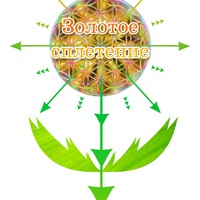
Өз уақытымызды ұтымды пайдалана білеміз бе? Біздің өміріміздегі ең қымбат нәрсе - ол уақыт. Уақыт
бізге емес, біз уақытқа тәуелдіміз. Уақытты қалаған кезімізде ұзартып, қалаған кезімізде қысқарта алмаймыз. Уақытты босқа кетіру - ең ауыр өкініш. Уақытын қадірлемеген жан көптеген мүмкіндіктен айырылып қалады. Адам баласы уақытын ұтымды пайдалана білгенде ғана көздеген мақсатына жете алмақ. «Бес нәрсенің қадірін біл: қартаймай тұрып жастық шақтың қадірін біл, ауырмай тұрып денсаулықтың қадірін біл, кедейліктен бұрын байлықтың қадірін біл, қысылтаяңнан бұрын бос уақытты қадірле және өлмей тұрып өміріңді қадірле» деген сөз бекер емес. Уақытқа қатысты қызықты деректерге сүйенсек, шамамен 800 миллион жыл бұрын, ерте замандағы тіршілік пайда болғанға дейін Жер бетін қалың мұздақ басып тұрған дәуірде бір жылда 486 күн болыпты. Ал жүз миллиондаған жылдар өткен соң - динозаврлар дәуірінде бір жыл 370 тәулікке дейін қысқарған. Дәл қазір оның небәрі 365 күннен ғана тұратыны белгілі. Неліктен бұлай? Өйткені, ғасырлар өткен сайын ай гравитациясының әсерінен Жер ғаламшарының айналу жылдамдығы азайып келе жатыр. Соның салдарынан күндер ұзарып (шамамен бір мыңжылдықта 1,7 миллисекундқа), ал жылдар қысқаруда. 1. Мәтіннің негізгі идеясы. 0
0
 0
0
Ответы на вопрос
 Внимание! Ответы на вопросы дают живые люди. Они могут содержать ошибочную информацию, заблуждения, а также ответы могут быть сгенерированы нейросетями. Будьте внимательны. Если вы уверены, что ответ неверный, нажмите кнопку "Пожаловаться" под ответом.
Внимание! Ответы на вопросы дают живые люди. Они могут содержать ошибочную информацию, заблуждения, а также ответы могут быть сгенерированы нейросетями. Будьте внимательны. Если вы уверены, что ответ неверный, нажмите кнопку "Пожаловаться" под ответом.

Ответ:
1.Бұл жерде көп неше өз уақытымыз туралы айтылған бұл уақытты біз тиімді пайдаланыуымых керек. Бұл өміріміздегі ең қымбат, бағалы уақыт.Біз Уақытымызды тиімді пайдалана білуіміз керек жақында жүрген туыс туысқандарымызды сыйлай білейік .
 0
0
 0
0

The Importance of Time
Time is indeed one of the most valuable resources in our lives. It is something we cannot create or control, but we can make the most of it. Time is not just a concept; it is a measure of our existence and the duration of events. We experience time as it passes, and it plays a crucial role in shaping our lives.
The Significance of Time
Time is finite: Each of us has a limited amount of time in our lives. From the moment we are born, the clock starts ticking, and we have a finite number of years, months, weeks, days, hours, minutes, and seconds. It is essential to recognize the value of time and make the most of it while we can.
Time is irreversible: Once time passes, it cannot be reversed or retrieved. We cannot go back in time and change our actions or decisions. Therefore, it is crucial to use our time wisely and make choices that align with our goals and values.
Time is a resource: Time is a valuable resource that can be used to achieve our goals, pursue our passions, build relationships, learn new skills, and make a positive impact on the world. It is up to us to allocate our time effectively and prioritize the things that matter most to us.
The Value of Time in History
Throughout history, the concept of time has played a significant role in the development of civilizations and the understanding of the world. Here are a few interesting facts about the value of time:
1. The Earth's rotation: The concept of a year, which is approximately 365 days, is based on the Earth's rotation around the sun. It takes about 365.24 days for the Earth to complete one orbit around the sun. This extra fraction of a day is why we have leap years every four years to keep our calendars aligned with the Earth's movement [[1]].
2. The impact of gravity: The force of gravity affects the passage of time. According to Einstein's theory of relativity, time moves slower in stronger gravitational fields. This means that time passes slightly faster at higher altitudes than at lower altitudes. The difference is tiny but measurable. For example, someone living at sea level experiences time slightly slower than someone living in the mountains [[2]].
3. The measurement of time: The modern measurement of time is based on the International System of Units (SI), which defines the second as the duration of 9,192,631,770 periods of the radiation corresponding to the transition between two hyperfine levels of the ground state of the cesium-133 atom. This highly precise definition allows for accurate timekeeping and synchronization across the globe [[3]].
4. The evolution of calendars: Throughout history, different civilizations have developed various calendar systems to track time. The ancient Egyptians, for example, used a calendar based on the annual flooding of the Nile River. The Gregorian calendar, which is widely used today, was introduced by Pope Gregory XIII in 1582 to correct errors in the Julian calendar and better align with the solar year [[4]].
Conclusion
Time is a precious and finite resource that shapes our lives and the world around us. It is essential to recognize its value, make the most of it, and prioritize the things that matter most to us. Whether it is achieving our goals, spending time with loved ones, or making a positive impact, time is a resource that should be cherished and utilized wisely.
 0
0
 0
0
Похожие вопросы
Топ вопросов за вчера в категории Қазақ тiлi

Последние заданные вопросы в категории Қазақ тiлi
-
Математика
-
Литература
-
Алгебра
-
Русский язык
-
Геометрия
-
Английский язык
-
Химия
-
Физика
-
Биология
-
Другие предметы
-
История
-
Обществознание
-
Окружающий мир
-
География
-
Українська мова
-
Информатика
-
Українська література
-
Қазақ тiлi
-
Экономика
-
Музыка
-
Право
-
Беларуская мова
-
Французский язык
-
Немецкий язык
-
МХК
-
ОБЖ
-
Психология
-
Физкультура и спорт
-
Астрономия
-
Кыргыз тили
-
Оʻzbek tili




















